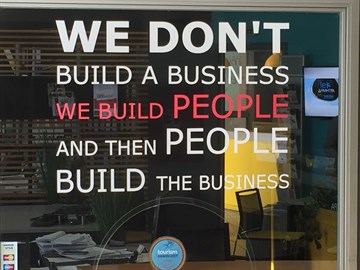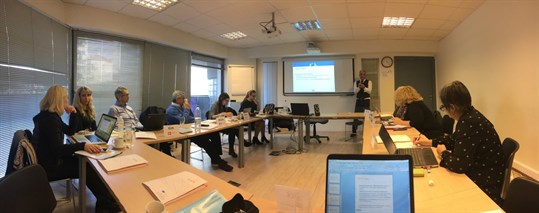 Capturing and sharing good practice from the activities that we are involved in is at the heart of what Rinova does. Using approaches that explore the social return on investment, having a focus on impact evaluation and promoting case studies are all part of this. So when we get the chance to do this to support innovation across Europe in lifelong learning, this really does excite us.
Capturing and sharing good practice from the activities that we are involved in is at the heart of what Rinova does. Using approaches that explore the social return on investment, having a focus on impact evaluation and promoting case studies are all part of this. So when we get the chance to do this to support innovation across Europe in lifelong learning, this really does excite us.
In recent years, our portfolio of work in Europe has included the NQCA project, which was lead by our partner Ballymun Jobcentre in Dublin, Eire. As the NQCA (Networking for Quality Culture and Assurance) partners note, “There appears to be an ominous cloud on the horizon for organisations that do not maintain a high quality standard in their daily work, or that fail to actively foster a culture of quality.” The partners worked together for two years designing, developing, implementing and sustaining a model of inter-agency working to nurture an authentic culture of quality assurance across individual learner journeys – something that has always been at the heart of our partnership practice at Rinova. In London, we piloted the NQCA approach with the emerging Employment Clusters in Islington with good effect.

Pictured above: A very relevant message on display at the offices of Dimitra, our long-standing partner in Greece.
Our experience is witness to our view that despite the plethora of quality assurance kite marks and processes and systems in our sector, there is a new challenge to be faced, notably in the UK: how can VET providers meet the demands of the ‘payment by results’ culture, whilst remaining committed to delivering truly learner-centered provision?
Therefore, we also took our commitment to quality assurance to another level through the ‘Promoting Quality Culture in VET (QC-VET)’ Erasmus+ project, and we recently launched the QSE-VET Erasmus+ Key Action 3 project. Both are led by our close colleagues Folkuniversitetet in Sweden, which has an unparalled reputation and track record in recent years for designing and implementing a range of quaity assurance initiatives in vocational education and lifelong learing in Europe.
The issue of quality and quality management in VET constitutes a major field of development within the European Union and many resources continue to be devoted to it. However, research suggests that VET organisations still find it difficult to translate evaluation results into improvement initiatives. Why? It would appear that quality assurance guides and toolkits are based on a fairly traditional model, which focus on ‘evaluation’ rather than engaging the provider team and stakeholders (at all levels of leadership and delivery). Through QC-VET and QSE-VET we are working with Folkuniversitetet and also partners such as Dimitra (Greece), MMC (Cyprus), Revalento (Netherlands), and FACO (Denmark) to design effective practice and transfer innovation across Europe.

Pictured: Ali Rashidi of Folkuniversitetet introduces the QSE-VET project to Rinova and partners at its kick-off meeting in Larissa, Greece on the 8th March 2018.
Would you like to get involved? If so, there’s a number of things that you can do:
- We are looking to interview a number of learning and training stakeholders to see how the quality system can better reflect employer needs for our QSE-VET project. Would you like to contribute? – contact Julie Parish j.parish@rinova.co.uk to take part.
- If you are prepared to challenge the way your organization learns from evaluation and quality assurance and are ready to better utilize evaluation results, then get in touch with Julie Parish at Rinova j.parish@rinova.co.uk to find out more about promoting quality culture and QC-VET.
- If you are committed to Networking for Quality Assurance and Quality Culture in Vocational Education and Training you can sign up to the NQCA values here.

The European Commission support for the production of this communication does not constitute an endorsement of the contents which reflects the views only of the authors, and the Commission cannot be held responsible for any use which may be made of the information contained therein.


